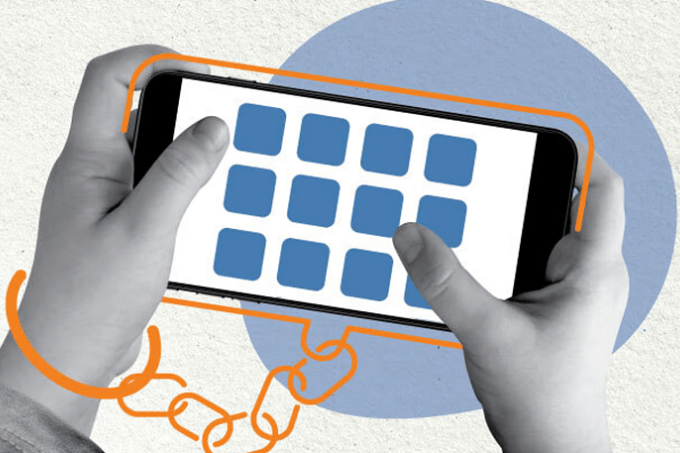It’s no secret that our screens have become an extension of ourselves, especially for teens in Singapore. A growing concern is emerging around the increasing time these young minds spend glued to digital devices. As screens light up, so do worries about their effects.
The question arises: are our teens in control, or is technology taking the reins? From smartphones to gaming consoles, the digital temptation is everywhere. This surge in screen time has led to a notable uptick in digital addiction cases. Let’s delve into the heart of this digital dilemma.
The Growing Grip of Digital Devices
Counsellors and social workers in Singapore point to a rising trend: teens increasingly drawn to their screens. These young individuals spend countless hours on social media or engrossed in gaming. The experts warn that such habits fuel addiction and trigger behavioral issues, making it a growing concern for society.
A study from the Institute of Mental Health (IMH) underscores that nearly half of teens in singapore fall into the category of problematic smartphone use. This includes symptoms like increased anxiety and insomnia, proving that the digital obsession is not just about the time spent online but the long-term impact on mental health.
Schools Are Taking Action
To combat distractions, many schools have implemented phone bans during school hours. These initiatives are part of a concerted effort to address the concerns of parents and educators.
Ms. Andrea Chan from Touch Mental Wellness reports cases where students skip school for gaming, or worse, threaten self-harm when faced with internet restrictions. This grim reality signals a need for immediate intervention.
Dr. Melvyn Zhang from IMH highlights the growing relevance of digital addiction among young individuals. As digital technology embeds itself into daily life, the focus now shifts to understanding its impact on mental health and well-being.
Tales from Teens
A 17-year-old girl shared her struggle with excessive smartphone use, revealing how online interactions can spiral into emotional turmoil. Spending nearly seven hours a day on apps like Instagram, she eventually faced cyberbullying. Her story emphasizes the impact of negative online experiences.
The girl recounted receiving hostile messages after expressing an opinion on a controversial topic. The result? A barrage of derogatory remarks, leading her to seek therapy as her self-esteem took a hit. Her experience serves as a warning about the potential consequences of digital interactions.
Her path to recovery began with reaching out to a private counselor. This step has helped her regain confidence as she reduces her screen time, highlighting the importance of timely intervention and support systems in managing digital addiction.
Strategies for Prevention
Madam Anita Low-Lim of Touch Wellness Group highlights that younger children are obtaining digital devices earlier. While convenient for parents, this early exposure opens a can of worms with regards to online risks.
The First Device Campaign launched by Touch aimed to initiate conversations about screen time and online safety before issues arise. Reaching over 3,000 families, the campaign is a proactive step toward curbing digital dependency.
Parents are encouraged to focus on their child’s developmental readiness when introducing them to digital devices. It’s not about age—it’s about whether they can understand healthy boundaries and communicate effectively, reducing the chance of addiction.
Parental Involvement is Key
Active parental involvement can mitigate unhealthy digital habits. Suggestions include setting boundaries like “no phone” zones at home and keeping gadgets aside during family time to foster healthier relationships.
Technology isn’t going away, but parents must model responsible digital habits. This helps children learn the value of real-world interactions over virtual ones. It’s about striking a balance, allowing the use of technology without letting it dominate their lives.
Help is at Hand
Touch Wellness Group provides resources like an animation series and guides to help families address digital addiction. These tools aim to create awareness and equip families with strategies to manage screen time.
Singapore’s We Care Community Services reports a rise in phone calls from schools and parents seeking advice on managing screen addiction. There’s a collective push to understand and combat this issue head-on.
Although there’s no definitive age for introducing a child to the digital world, gauging their maturity and readiness is crucial. This involves careful evaluation and open communication between parents and children.
Building a Digital Future
Ms. Tham Yuen Han from We Care emphasizes the importance of active parental roles in managing children’s device usage. It’s crucial to be present and steer conversations around healthy interactions.
By establishing norms and expectations early, families can navigate this digital era more confidently. As we gear up for an increasingly connected world, the focus should remain on guiding the younger generation through mindful use of technology.
Navigating Online Challenges
The virtual world offers both opportunities and threats. Teens must learn to embrace the positives and shield themselves from the negatives. Education on online conduct and awareness of cyber safety is essential.
Parents and educators play a pivotal role in shaping how teens interact with the digital world. Encouraging open dialogue about online experiences can lead to better understanding and coping mechanisms, safeguarding mental well-being.
Digital addiction among Singaporean teens is an escalating issue, but it is not insurmountable. With the right guidance and support, young people can learn to balance their online and offline lives.
Addressing this challenge requires more than just awareness; it involves a community effort to support, educate, and empower youth to make informed digital choices. As we continue to work on these frontiers, the aim is a healthier, more balanced future for everyone involved.
Digital devices have woven themselves into the fabric of teen lives. While they offer immense benefits, their overuse raises numerous concerns. It’s crucial for parents, schools, and society to come together, helping guide teens towards a balanced digital presence that enhances life without ruling it.



